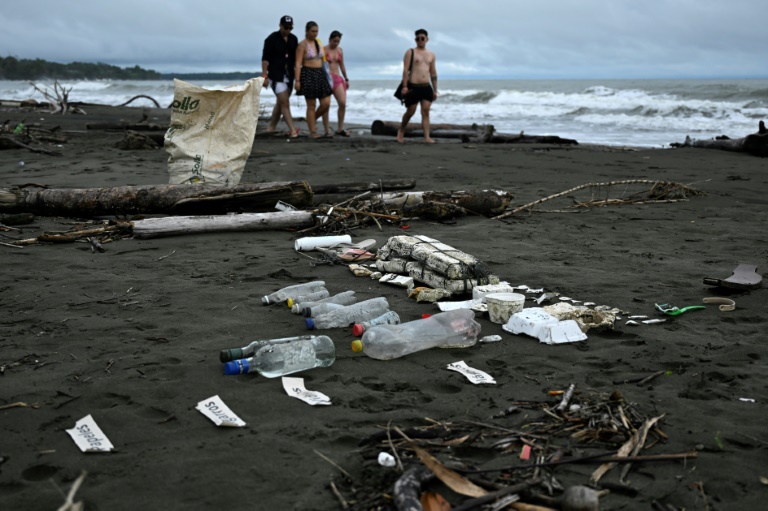On a beach in Colombia, children exchange plastic waste for pseudo-coins with which they can ‘buy’ clothes, books, school supplies or even popcorn.
Bahia Malaga National Park, on Colombia’s Pacific coast, is one of the best places in the South American country to spot humpback whales.
The giant mammals attract tourists, a welcome source of income, but the visitors leave behind a heavy plastic footprint in the form of tons of waste.
Pollution will be one of the main topics on the agenda at the upcoming UN COP16 biodiversity conference in the Colombian city of Cali, which starts on October 21.
According to the UN, about eight million tons of plastic end up in the ocean every year.
The charity Plastico Precioso Uramba is leading a major clean-up campaign in Bahia Malaga, where it has collected around 16 tonnes of waste since 2019.
The key to its success was inventing a means of payment to encourage collection: every 250 grams of plastic collected can be exchanged for a plastic coin, which can in turn be exchanged for a range of goods in a store run by the charity.
For example, a notebook costs the equivalent of 30 plastic caps.
“The waste problem is transformed into incentives for local economies,” explains Sergio Pardo, director of Plastico Precioso Uramba.
And children are the foot soldiers in his war against plastic waste.
“I collect bottle caps and take them to the store,” said 13-year-old Juan Jose Lopez.
Pardo also melted down caps and turned them into desks for a local school, as a prize for the class that recycled the most.
Teacher Soraya Hinestroza said the waste program has made children “diligent” learners about recycling.
“We motivate families through the children, who return home and become environmental activists within their households.”
das/lv/cb/sms







